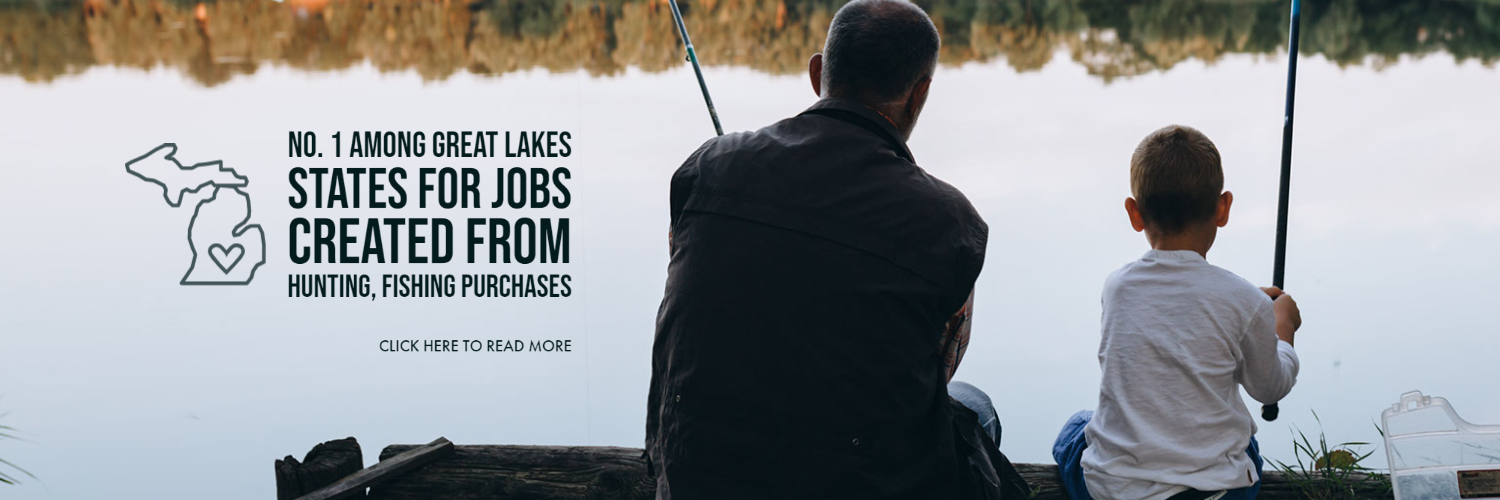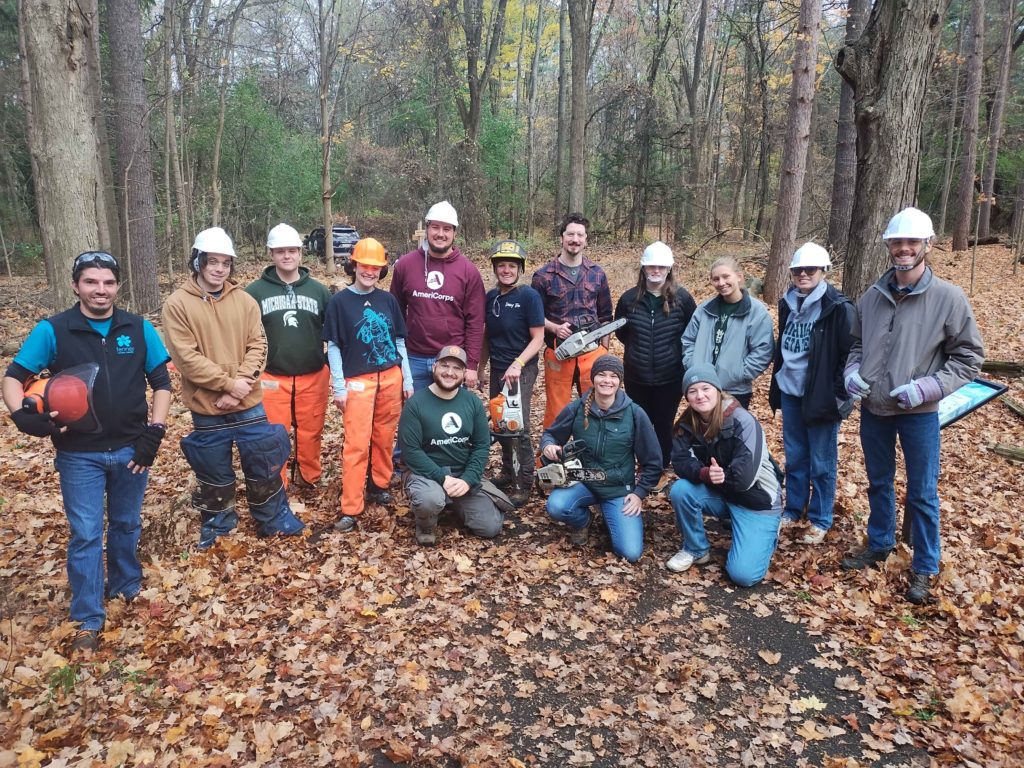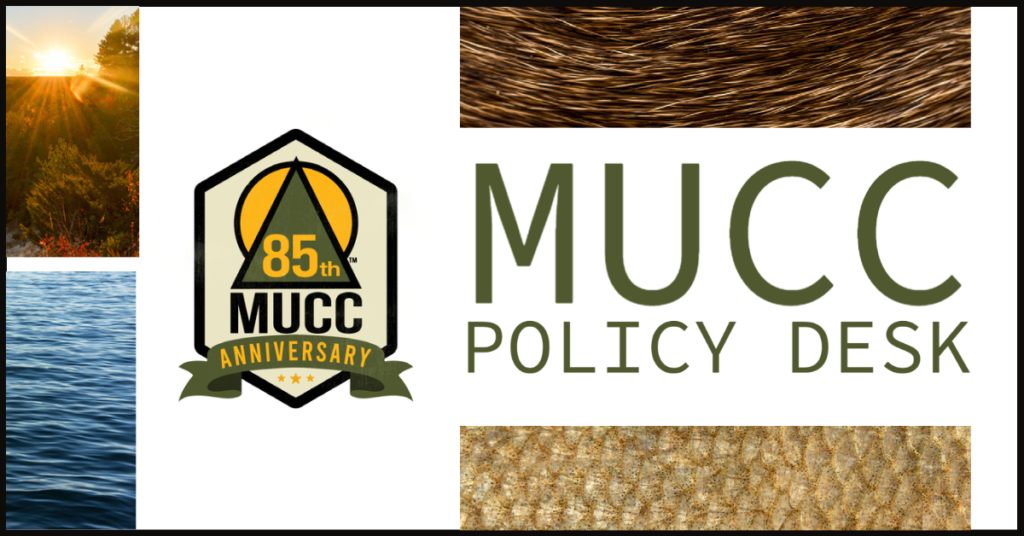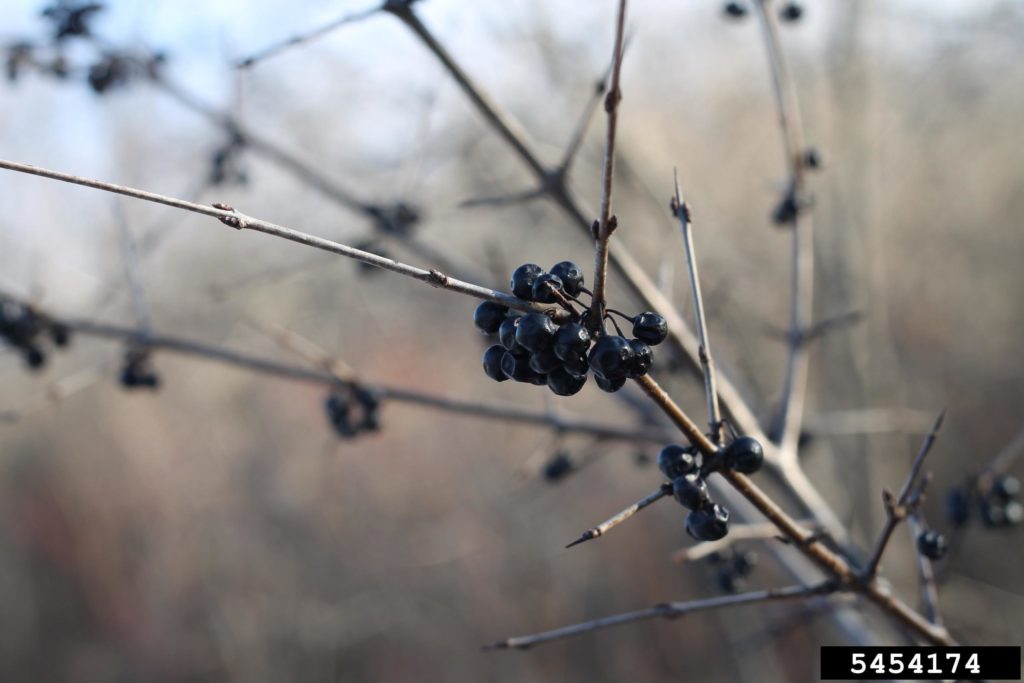Michigan United Conservation Clubs is the largest statewide conservation organization in the nation. Founded in 1937, our mission is to unite citizens to conserve, protect and enhance Michigan's natural resources and outdoor heritage. This mission drives everything we do as an organization.

Your membership also makes you an active participant in Michigan's conservation community. As a member of MUCC, you can propose conservation policy resolutions that form the backbone of our efforts in Lansing. By joining MUCC, you can set the direction for hunting, fishing, trapping and conservation policy for Michigan.
Help us continue to defend your rights to hunt, fish and trap in Michigan today. Your generous contribution allows us to put on our yearly summer camp for kids, restore habitat across the state, and fight anti-hunting legislation in Lansing.
BLOG
Last Saturday, November 4th, 2023, MUCC’s On the Ground program partnered with Fenner Nature Center and Daisy Tree Care to host a Chainsaw Safety and Stewardship Day on FNC’s grounds. In total, 14 volunteers learned basic chainsaw maintenance and then got some hands-on experience cutting unwanted logs and trees in Fenner’s Maple Grove. The course…
Read MoreMichigan United Conservation Clubs board voted to oppose lower steelhead bag limits at the upcoming November Natural Resources Commission (NRC) meeting. The meeting will be held on Thursday, Nov. 9 at 9:30 am at Lansing Community College. Commissioners will consider one order: the MUCC-opposed amendment to proposed Fisheries Order 200.23A that would lower the bag…
Read MoreAs the leaves begin to fall and winter approaches, the need to remove woody invasives continues. Removing woody invasives during the wintertime is ideal as the species becomes dormant and easy to get access. The big issue then becomes how you can distinguish a woody invasive from a native plant when it’s just the bark.…
Read More







